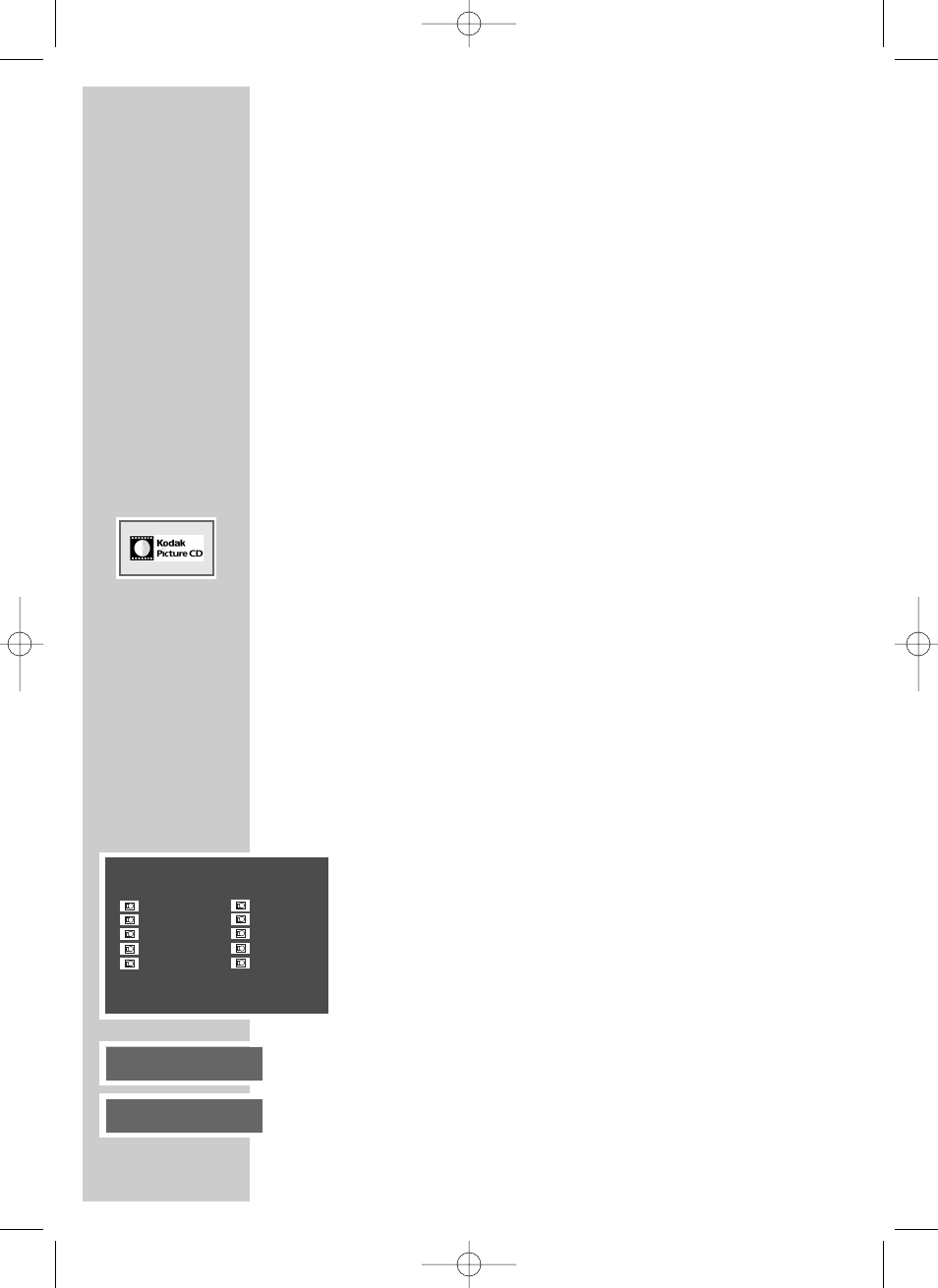
34
Features of the JPEG CD
JPEG stands for Joint Picture Experts Group. This process was desi-
gned to compress picture files.
JPEG files can be burned onto a CD along with other file types.
Such CDs are known as file CDs or mixed mode CDs. For example,
the CD could contain MP3 files (audio) and JPEG files (for example
to display album covers).
The files on a JPEG CD can be organised in directories. This structu-
re is similar to that of an MP3 CD.
JPEG CDs only contain data in the compressed JPEG format. This is
mostly data from digital cameras or from picture processing pro-
grams. The data (pictures) can be displayed individually or in
sequence in a slide show.
Features of the KODAK picture CD
This method was developed for archiving analogue photographs.
After they are developed, small photographs are scanned with a
resolution of 1536 x 1024 pixels and burnt onto a CD in JPEG
format.
A KODAK picture CD can contain up to 40 pictures. In addition to
the picture files, a KODAK picture CD can also contain imaging
software which enables the user to play the CD on a PC, edit the
pictures or view a slide show.
Displaying JPEG pictures
1 After the disc compartment closes and the JPEG picture CD is
scanned, the slide show starts automatically.
Call up the file browser or inset picture overview
1 During playback call up the file browser (table of contents for
the JPEG CD) using »
7
«.
2 Switch to the next or previous page of the inset picture
overview using »
6« or »5«.
3 Select the desired picture with »
A
«, »
S
« »
a
« or »
s
« and
confirm with »OK«.
– The JPEG picture appears as a still image on the screen, and
after a short while the next picture appears.
Note:
To view the picture for longer, press »
!
«. Press »
8
« continue
the slide show.
PICTURE CD PLAYBACK
______________________
Ł
Play
II
Pause
CD-R 1/88
Birds
1 029155 6 031507
2 031426 7 031512
3 031490 8 031516
4 031496 9 031529
5 031498 10 031530
GDP 3564,GB 26.10.2005 12:49 Uhr Seite 34


















